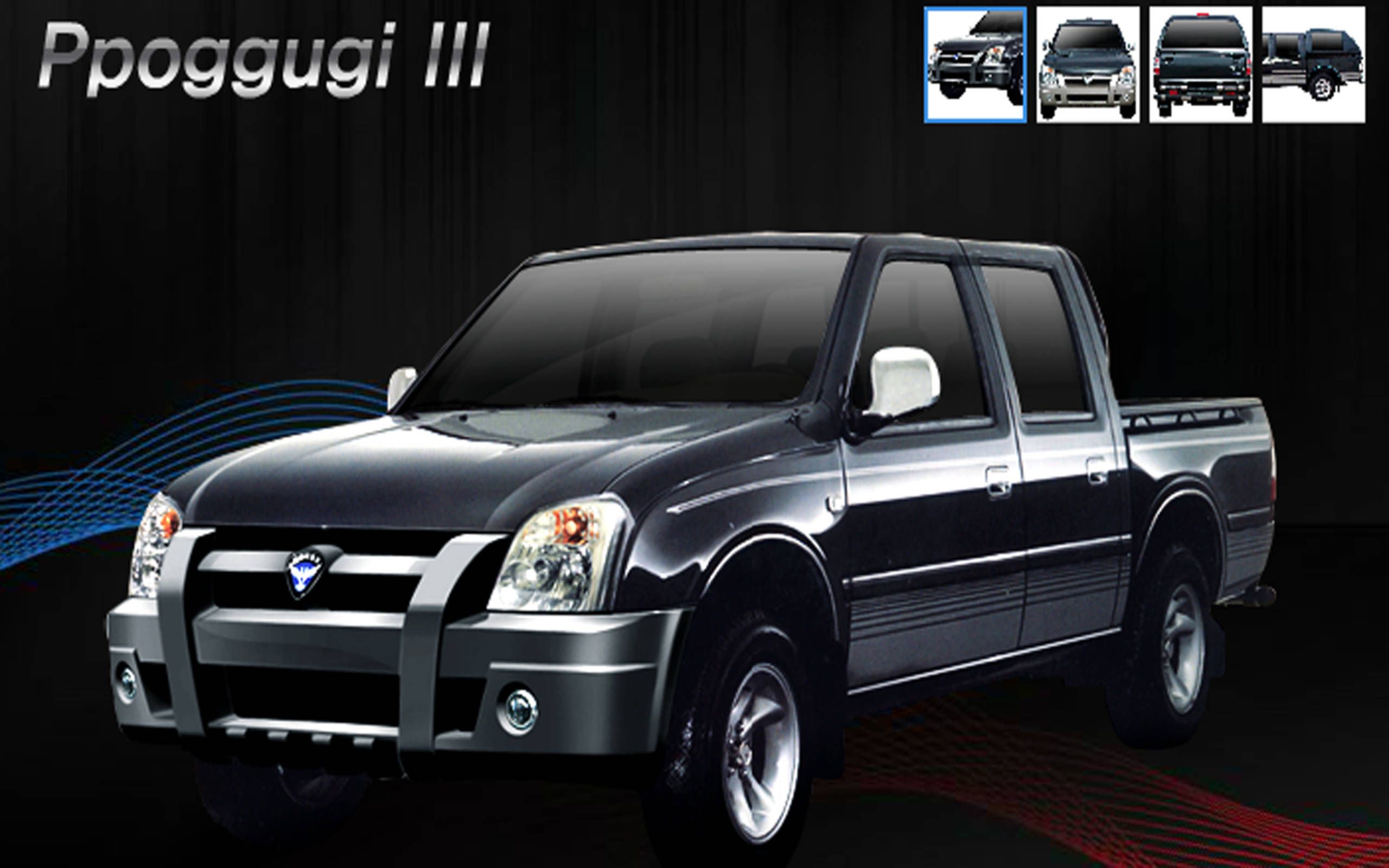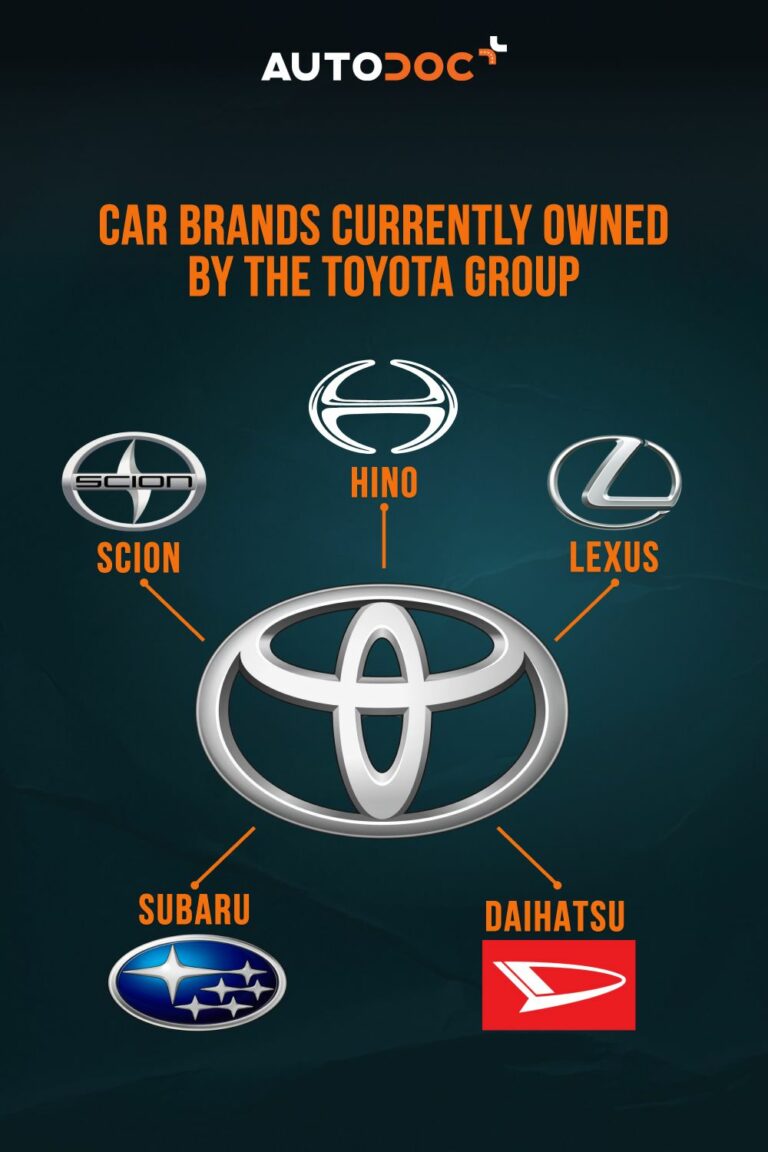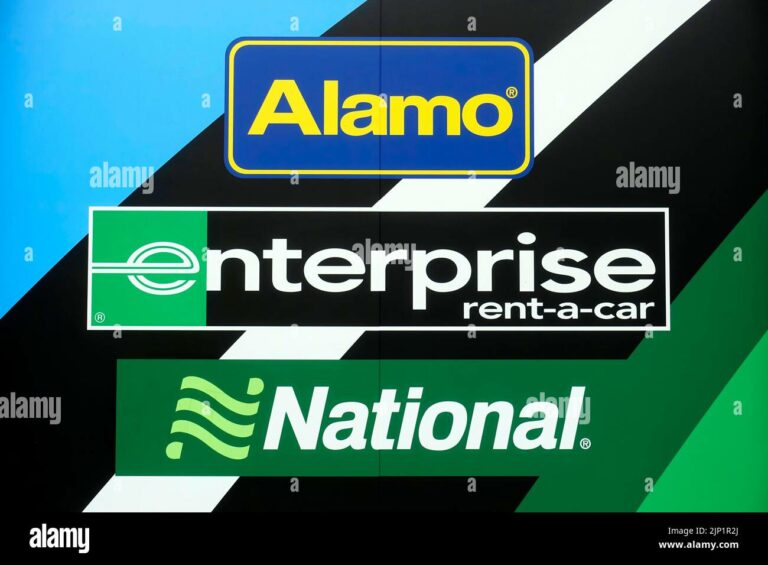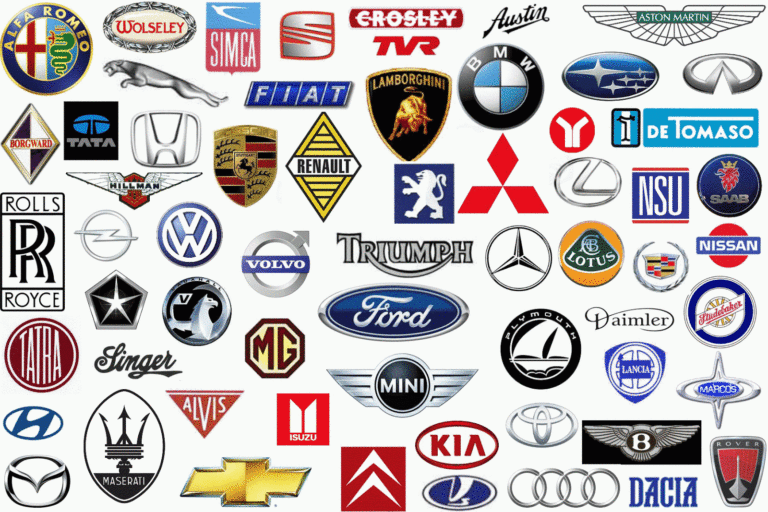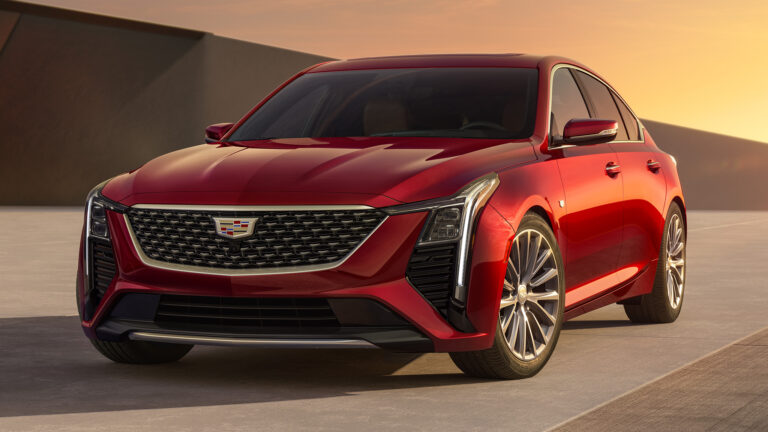Luxury Korean Car Brands
Luxury Korean Car Brands cars.truckstrend.com
For decades, the global luxury automotive market was dominated by a select few: the precision engineering of Germany, the refined elegance of Japan, and the bold statements of American marques. However, a quiet revolution has been brewing on the Korean Peninsula. What began as an ambitious foray into the premium segment has blossomed into a formidable challenge to the established order, giving rise to "Luxury Korean Car Brands." These brands, spearheaded by Genesis and complemented by Kia’s increasingly upscale offerings, are redefining luxury with a unique blend of sophisticated design, cutting-edge technology, exceptional value, and a customer-centric approach. They represent a significant shift, demonstrating Korea’s automotive industry’s maturity and its ability to compete at the highest echelons, offering discerning buyers compelling alternatives that are anything but conventional.
The Genesis of Korean Luxury: From Value to Prestige
Luxury Korean Car Brands
The journey of Korean car manufacturers into the luxury segment is a testament to relentless ambition and rapid evolution. For much of their history, brands like Hyundai and Kia were synonymous with affordability, reliability, and value. Their initial success was built on offering well-equipped vehicles at competitive price points, appealing to a broad consumer base. However, as their engineering capabilities and design prowess matured, so too did their aspirations.
Hyundai’s first serious attempt to break into the premium market came with models like the XG350 in the early 2000s, followed by more substantial efforts with the Hyundai Genesis sedan (later renamed G80) and the Equus (later G90). These vehicles, while offering impressive features and comfort for their price, still carried the Hyundai badge, which presented a perception challenge against established luxury names. The company recognized that to truly compete, they needed a distinct identity, free from the mainstream association. This realization paved the way for the birth of a dedicated luxury brand.
Genesis: The Dedicated Luxury Brand
In 2015, Hyundai officially launched Genesis as its standalone luxury division. The move signaled a clear intent: to create vehicles that not only rivaled but, in many aspects, surpassed the offerings of Mercedes-Benz, BMW, Audi, Lexus, and Cadillac. Genesis quickly established a unique identity built on a philosophy of "Athletic Elegance," combining dynamic performance with refined sophistication.
Design Philosophy and Key Models:
Genesis vehicles are instantly recognizable by their distinctive "Two Lines" design signature, seen in their quad-lamp headlights and taillights, and the prominent crest grille. This aesthetic is both bold and elegant, setting them apart.
- Genesis G70: A compact luxury sport sedan designed to compete directly with the BMW 3 Series and Mercedes-Benz C-Class. It emphasizes driving dynamics, agile handling, and a driver-focused interior.
- Genesis G80: The mid-size luxury sedan, the spiritual successor to the original Hyundai Genesis. It offers a blend of comfort, technology, and sophisticated design, positioning itself against the BMW 5 Series and Mercedes-Benz E-Class.
- Genesis G90: The flagship full-size luxury sedan, a direct competitor to the S-Class and 7 Series. The G90 embodies the pinnacle of Genesis luxury, with an emphasis on rear-seat comfort, advanced technology, and opulent materials.
- Genesis GV70: A compact luxury SUV that quickly became a sales leader. It shares its platform with the G70 and offers a compelling mix of sporty driving, upscale interior, and practical utility.
- Genesis GV80: The brand’s first mid-size luxury SUV, making a grand entrance with its striking design and spacious, technology-rich cabin. It competes with the BMW X5 and Mercedes-Benz GLE.
- Genesis GV60: The brand’s first dedicated electric vehicle, built on the E-GMP platform. It showcases Genesis’s commitment to electrification with unique design elements, innovative features like Face Connect, and impressive performance.
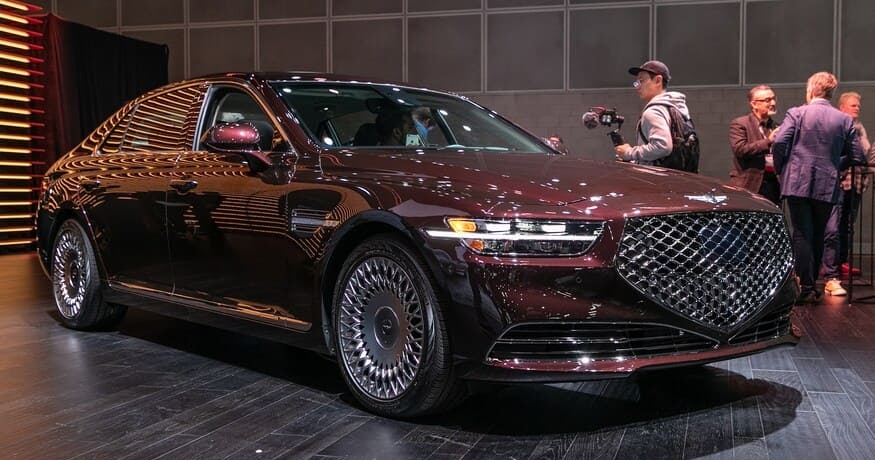
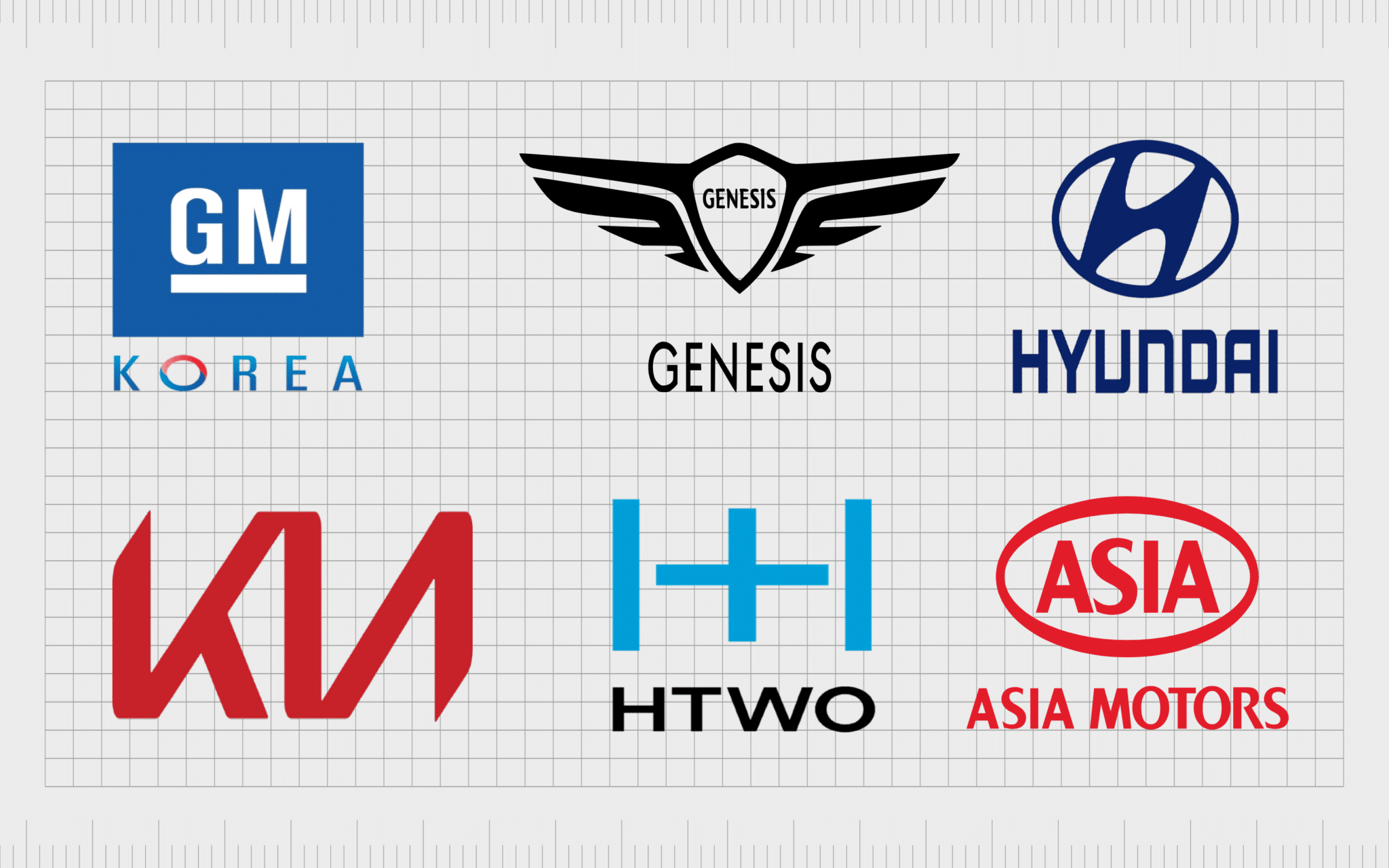
Technology, Safety, and Driver Assistance:
Genesis vehicles are packed with cutting-edge technology. This includes intuitive infotainment systems with large displays, advanced connectivity features, and premium audio systems. Safety is paramount, with a comprehensive suite of advanced driver-assistance systems (ADAS) under the "Genesis Active Safety Control" umbrella, offering features like Highway Driving Assist, remote smart parking assist, and multiple airbags.
Customer Experience and Service:
Genesis aims to differentiate itself not just through its cars but also through its ownership experience. This includes concierge services, at-home test drives, complimentary scheduled maintenance, and valet service for maintenance appointments, often picking up and returning the vehicle to the owner. This white-glove approach seeks to elevate the luxury experience beyond just the vehicle itself.
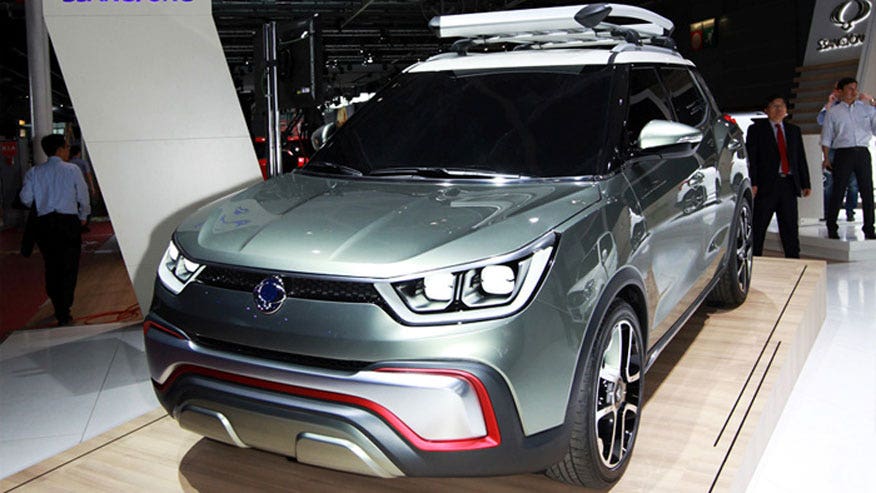
Kia’s Premium Offerings: Elevating the Mainstream
While Kia does not operate a separate luxury division like Genesis, the brand has made significant strides in elevating its mainstream offerings to a premium level, blurring the lines between mainstream and luxury segments. Kia’s transformation has been driven by a focus on bold design, high-quality interiors, advanced technology, and compelling performance.
The Kia K900:
The most direct example of Kia’s luxury aspirations was the K900 full-size sedan. Positioned as a direct competitor to entry-level luxury sedans, the K900 offered a spacious, comfortable cabin with premium materials, a smooth ride, and a host of advanced features, often at a price point significantly lower than its rivals. While its sales volume never matched its German or Japanese counterparts, it demonstrated Kia’s capability to build a truly luxurious vehicle.
Premium Mainstream Models:
Beyond the K900, several Kia models showcase the brand’s premium direction:
- Kia Stinger: A sportback sedan that combines striking design with impressive performance, often drawing comparisons to European sport sedans. Its RWD/AWD platform and powerful engine options give it a decidedly premium feel.
- Kia Telluride: A highly acclaimed three-row SUV that redefined what a family SUV could be. Its rugged yet refined design, spacious and upscale interior, and comprehensive features list have made it a segment leader, often chosen over entry-level luxury SUVs.
- Kia Carnival (MPV): Marketed as a "Grand Utility Vehicle," the Carnival elevates the minivan concept with SUV-like styling, a sophisticated interior, and innovative features, offering a truly premium family transport experience.
These models, while not carrying a dedicated luxury badge, offer a level of refinement, technology, and design that challenges traditional luxury vehicles within their respective segments, showcasing Kia’s impressive progress.
Key Pillars of Korean Luxury
The success of Genesis and Kia’s premium push can be attributed to several core pillars:
- Distinctive Design Language: Both Genesis and Kia have invested heavily in design, attracting top talent from around the globe. Their vehicles feature bold, unique aesthetics that stand out in a crowded market, moving away from generic designs to create recognizable brand identities.
- Cutting-Edge Technology & Innovation: Korean luxury cars are often at the forefront of automotive technology. This includes advanced infotainment systems with large, crisp displays, intuitive user interfaces, comprehensive connectivity features, and innovative ADAS suites that enhance safety and convenience. Features like Smart Park Assist, Fingerprint Authentication, and Vehicle-to-Load (V2L) capability in EVs highlight their innovation.
- Refined Performance & Driving Dynamics: Beyond just powerful engines, Korean luxury brands focus on delivering a balanced driving experience. This involves sophisticated suspension tuning, quiet cabins, and smooth power delivery, ensuring both comfortable cruising and engaging performance when desired.
- Exceptional Value Proposition: Perhaps the most compelling aspect of Korean luxury is the value they offer. While their prices are competitive with established luxury brands, they often come with more standard features, longer warranties, and more inclusive service packages, providing a higher perceived value for the money.
- Customer-Centric Experience: Particularly for Genesis, the emphasis on a seamless and luxurious ownership experience, from personalized sales processes to convenient maintenance services, sets them apart and builds brand loyalty.
The Road Ahead: Challenges and Opportunities
Despite their rapid ascent, Korean luxury brands face ongoing challenges. Brand perception remains a hurdle for some, as consumers accustomed to traditional luxury names may be hesitant to consider a newer entrant. Expanding their dedicated dealership and service networks globally is also a continuous effort.
However, the opportunities are immense. The shift towards electric vehicles provides a level playing field, where legacy brands don’t necessarily have a massive head start. Genesis, with its dedicated EV models like the GV60 and electrified versions of its existing lineup, is well-positioned to capitalize on this trend. Their unique design, strong technology offerings, and compelling value proposition appeal to a new generation of luxury buyers looking for alternatives to the status quo. As global tastes diversify and consumers become more open to new luxury experiences, Korean brands are poised for continued growth and influence.
Practical Advice for Considering a Luxury Korean Car
For those contemplating a luxury vehicle, considering a Korean option offers distinct advantages:
- Define Your Priorities: Are you looking for cutting-edge technology, unique design, driving dynamics, or exceptional value? Korean luxury cars often excel in a combination of these.
- Test Drive Extensively: Don’t just look at the specs. Spend significant time test driving models like the Genesis G70, G80, GV70, or GV80. Pay attention to interior quality, ride comfort, technology interface, and overall driving feel.
- Compare Features and Value: When comparing against German or Japanese rivals, note how many features come standard on the Korean models that might be expensive options on competitors. Factor in warranty and service offerings.
- Consider Long-Term Ownership: Research reliability ratings (Genesis and Hyundai/Kia consistently rank high), and explore the local service network for convenience. While resale value is improving, it might still lag slightly behind segment leaders, so factor this into your decision if it’s a primary concern.
- Embrace the New Luxury: If you appreciate innovation, distinctive design, and a fresh approach to luxury, Korean brands offer a compelling and refreshing alternative to the established norms.
Price Table: Luxury Korean Car Brands (Approximate Starting MSRPs, US Market)
Please note: Prices are approximate starting MSRPs and can vary significantly based on trim level, optional features, region, and current market conditions. They do not include destination charges, taxes, or dealer markups.
| Brand | Model | Segment | Approximate Starting MSRP (USD) | Key Features/Notes |
|---|---|---|---|---|
| Genesis | G70 | Compact Luxury Sedan | $41,500 | Sporty, driver-focused, engaging dynamics. |
| Genesis | G80 | Mid-Size Luxury Sedan | $55,000 | Elegant, comfortable, technology-rich. |
| Genesis | G90 | Full-Size Luxury Sedan | $90,000 | Flagship, opulent, ultimate comfort and tech. |
| Genesis | GV70 | Compact Luxury SUV | $45,000 | Stylish, sporty, popular, strong value. |
| Genesis | GV80 | Mid-Size Luxury SUV | $58,000 | Bold design, spacious, luxurious, first SUV for brand. |
| Genesis | GV60 | Compact Electric SUV | $60,000 | Dedicated EV, innovative tech, unique design. |
| Kia | K900 | Full-Size Luxury Sedan | (Discontinued in US market) | Kia’s most direct luxury offering (previously $60,000+) |
| Kia | Stinger | Performance Sportback | $38,000 | RWD/AWD, sporty, premium feel, powerful engines. |
| Kia | Telluride | Mid-Size 3-Row SUV | $36,000 | Highly acclaimed, premium interior, great value. |
| Kia | Carnival | Premium MPV | $34,000 | "Grand Utility Vehicle," SUV-like styling, versatile. |
Frequently Asked Questions (FAQ) about Luxury Korean Car Brands
Q1: Are Luxury Korean cars reliable?
A1: Yes, absolutely. Both Genesis and Kia (as part of Hyundai Motor Group) consistently rank highly in reliability and initial quality studies from reputable organizations like J.D. Power and Consumer Reports. Their commitment to engineering and manufacturing quality is a cornerstone of their push into the luxury segment.
Q2: How do Korean luxury brands compare to German or Japanese luxury brands?
A2: Korean luxury brands, especially Genesis, offer a compelling alternative. They often provide more standard features, longer warranties, and advanced technology at a more competitive price point than their German counterparts (BMW, Mercedes-Benz, Audi). Compared to Japanese luxury brands (Lexus, Acura, Infiniti), Korean brands often have bolder, more distinctive designs and a more aggressive embrace of new technologies. While they may not yet have the same long-standing prestige or resale value, they offer a fresh, modern luxury experience.
Q3: What is Genesis’s unique selling proposition (USP)?
A3: Genesis’s USP lies in its combination of "Athletic Elegance" design, comprehensive standard technology and safety features, a refined driving experience, and a unique, concierge-style customer service model. They aim to provide a premium ownership experience that goes beyond just the vehicle itself, often including at-home test drives, valet service for maintenance, and extended warranties.
Q4: Do Luxury Korean cars hold their value well?
A4: Resale value for Genesis models is steadily improving as the brand gains recognition and market share. While they may not yet match the top-tier resale values of brands like Lexus or certain German marques, their strong initial value proposition and increasing brand appeal mean they offer good long-term value, especially when considering the features included.
Q5: Are spare parts and service readily available for these brands?
A5: Yes, as part of the Hyundai Motor Group, Genesis and Kia benefit from an extensive parts and service network. Genesis has a growing network of dedicated dealerships and service centers, often offering valet service where they pick up and return your vehicle for maintenance. Kia’s parts and service network is very widespread, leveraging its mainstream presence.
Concluding Summary
The emergence of luxury Korean car brands, particularly Genesis, marks a significant evolution in the global automotive landscape. What began as an audacious ambition has matured into a formidable force, challenging the long-held dominance of traditional luxury marques. With their distinctive design language, advanced technology, refined driving dynamics, and a strong emphasis on customer experience and value, these brands are not just building cars; they are crafting a new narrative for modern luxury. As they continue to innovate, especially in the burgeoning EV market, luxury Korean cars are poised to capture an ever-growing share of the premium segment, proving that true luxury knows no single origin, but rather, is defined by excellence and a relentless pursuit of perfection.
